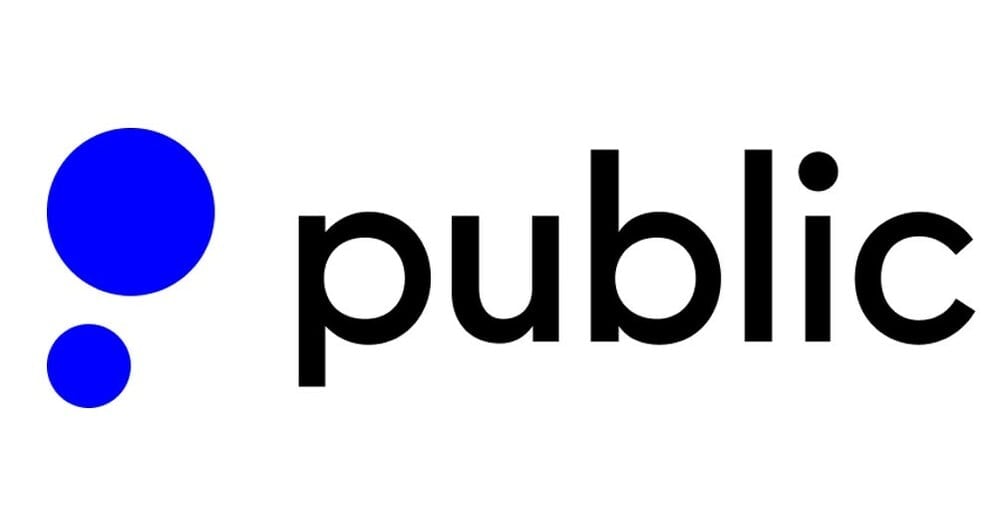Best Online Stock Brokers for Beginners of April 2024
Stock brokers primarily operate online these days, and there are strong, low-cost brokers for every type of investor. Below, our Nerds' picks for the best brokers for beginners.
Many or all of the products featured here are from our partners who compensate us. This influences which products we write about and where and how the product appears on a page. However, this does not influence our evaluations. Our opinions are our own. Here is a list of our partners and here's how we make money.
The investing information provided on this page is for educational purposes only. NerdWallet, Inc. does not offer advisory or brokerage services, nor does it recommend or advise investors to buy or sell particular stocks, securities or other investments.
When you’re a beginner investor, the right broker can be so much more than simply a platform for placing trades. Online stock brokers can help you build a solid investing foundation — functioning as a teacher, advisor and investment analyst — and serve as a lifelong portfolio co-pilot as your skills and investing strategy mature.
What does a stock broker do?
Stock brokers are people or firms licensed to buy and sell stocks and other securities via the stock market exchanges. Decades ago, the only way for individuals to invest directly in stocks was to hire stock brokers to place trades on their behalf.
But what was once a clunky, costly transaction conducted on landline telephones now takes place in seconds through online stock brokers. Better still, those brokers cost a fraction of what full-service brokers used to charge for the service; many online brokers, including the ones below, offer commission-free stock trades. They also have very low or no account fees, which is part of what made them eligible for our list. (A little lost? Check out our explainers on what a broker is, brokerage accounts and buying stocks.)
We've selected the best brokers for beginner investors, based on key factors like customer support, account minimums and educational resources.
When you’re a beginner investor, the right broker can be so much more than simply a platform for placing trades. Online stock brokers can help you build a solid investing foundation — functioning as a teacher, advisor and investment analyst — and serve as a lifelong portfolio co-pilot as your skills and investing strategy mature.
What does a stock broker do?
Stock brokers are people or firms licensed to buy and sell stocks and other securities via the stock market exchanges. Decades ago, the only way for individuals to invest directly in stocks was to hire stock brokers to place trades on their behalf.
But what was once a clunky, costly transaction conducted on landline telephones now takes place in seconds through online stock brokers. Better still, those brokers cost a fraction of what full-service brokers used to charge for the service; many online brokers, including the ones below, offer commission-free stock trades. They also have very low or no account fees, which is part of what made them eligible for our list. (A little lost? Check out our explainers on what a broker is, brokerage accounts and buying stocks.)
We've selected the best brokers for beginner investors, based on key factors like customer support, account minimums and educational resources.
As part of our detailed process, we conduct hands-on testing of each stock broker to understand and evaluate the user experience. This includes signing up for and funding a new account and placing trades on the stock broker's platform.
Best Online Stock Brokers for Beginners
| Broker | NerdWallet rating | Fees | Account minimum | Promotion | Learn more |
|---|---|---|---|---|---|
 J.P. Morgan Self-Directed Investing Learn more on J.P. Morgan's website | $0 per trade | $0 | Get up to $700 when you open and fund a J.P. Morgan Self-Directed Investing account with qualifying new money. | Learn more on J.P. Morgan's website | |
 Fidelity Learn more on Fidelity's website | $0 per trade for online U.S. stocks and ETFs | $0 | None no promotion available at this time | Learn more on Fidelity's website | |
 Charles Schwab Learn more on Charles Schwab's website | $0 per online equity trade | $0 | None no promotion available at this time | Learn more on Charles Schwab's website | |
 Robinhood Learn more on Robinhood's website | $0 per trade | $0 | 1 Free Stock after linking your bank account (stock value range $5.00-$200) | Learn more on Robinhood's website | |
 Interactive Brokers IBKR Lite Learn more on Interactive Brokers' website | $0 per trade | $0 | None no promotion available at this time | Learn more on Interactive Brokers' website |
$0
per trade
$0
Get up to $700
when you open and fund a J.P. Morgan Self-Directed Investing account with qualifying new money.
Pros
Easy-to-use platform.
$0 commissions.
App connects all Chase accounts.
No account minimum.
Cons
Limited tools and research.
Portfolio Builder tool requires $2,500 balance.
Low interest rate on uninvested cash.
Why We Like It
J.P. Morgan Self-Directed Investing is a clear-cut investment platform that is great for beginners looking to learn how to buy and sell investments. More advanced investors, however, may find it lacking in terms of available assets, tools and research. INVESTMENT PRODUCTS: NOT A DEPOSIT • NOT FDIC INSURED • NO BANK GUARANTEE • MAY LOSE VALUE
$0
per trade for online U.S. stocks and ETFs
$0
None
no promotion available at this time
Pros
Commission-free stock, ETF and options trades.
Large selection of research providers.
Strong customer service.
Expense-ratio-free index funds.
Highly rated mobile app.
High interest rate on uninvested cash.
Cons
Relatively high broker-assisted trade fee.
Why We Like It
Fidelity offers $0 trading commissions, a selection of more than 3,300 no-transaction-fee mutual funds and top-notch research tools and trading platform. Its zero-fee index funds and strong customer service reputation are just icing on the cake.
$0
per online equity trade
$0
None
no promotion available at this time
Pros
Four trading platforms with no minimum or fees.
Above-average mobile app.
Extensive research.
Large fund selection.
Commission-free stock, options and ETF trades.
Cons
Low interest rate on uninvested cash.
Why We Like It
Charles Schwab has earned its strong reputation: The broker offers high-quality customer service, four free trading platforms, a wide selection of no-transaction-fee mutual funds and $0 commissions for stocks, ETFs and options.
$0
per trade
$0
1 Free Stock
after linking your bank account (stock value range $5.00-$200)
Pros
No account minimum.
Streamlined interface.
Cryptocurrency trading.
IRA with 1% match.
High interest rate on uninvested cash.
Cons
No mutual funds or individual bonds.
Limited customer support.
Why We Like It
Robinhood provides free stock, options, ETF and cryptocurrency trades, and its account minimum is $0, too. Mutual funds and bonds aren't offered, and only taxable investment accounts are available. Still, if you're looking to limit costs or trade crypto, Robinhood is a solid choice.
$0
per trade
$0
None
no promotion available at this time
Pros
Large investment selection.
Strong research and tools.
Over 19,000 no-transaction-fee mutual funds.
High order execution quality.
Cons
High minimum to earn interest on uninvested cash.
Why We Like It
Interactive Brokers' IBKR Lite is a strong option for frequent traders: The broker offers international trade capabilities, no stock-trading commission and a quality trading platform.
$0
per trade
$0
None
no promotion available at this time
Pros
Large mutual fund selection.
Commission-free stock, options and ETF trades.
Leader in low-cost funds.
High interest rate on uninvested cash.
High order execution quality.
Cons
Basic trading platform only.
Limited research and data.
Why We Like It
Vanguard is the king of low-cost investing, making it ideal for buy-and-hold and retirement investors. But active traders will find the broker falls short despite its $0 trade commission, due to the lack of a strong trading platform.
$0
per trade
$0
Get up to 75 free fractional shares (valued up to $3,000)
when you open and fund an account with Webull.
Pros
Low costs.
Easy-to-use platform.
Advanced tools.
Access to cryptocurrency.
High interest rate on uninvested cash.
High order execution quality.
Cons
No mutual funds.
Thin educational support.
Why We Like It
Webull will appeal to the mobile-first generation of casual investors with its slick interface for desktop and mobile apps, but the brokerage also delivers an impressive array of tools for active traders. However, its relatively weak educational content may leave true beginners in the lurch, and it lacks access to a few common asset classes.
$0
$0
None
no promotion available at this time
Pros
Rebates for trading options.
Impressive selection of alternative assets.
Easy-to-use signup and trading interface.
Cons
No mutual funds.
No margin trading or futures trading.
Lack of tools (e.g. customizable screeners) and account types (e.g. IRAs).
Want to compare more options? Here are our other top picks:
More resources for beginners
Need some background? Read our guide to how the stock market works.
Unsure of how to build your portfolio? Learn more about how to invest in stocks.
Interested in instant diversification? Understand how investing in mutual funds can help.
Want to join the passive investing revolution? Consider index funds.
Last updated on April 18, 2024
Methodology
NerdWallet’s comprehensive review process evaluates and ranks the largest U.S. brokers by assets under management, along with emerging industry players. Our aim is to provide an independent assessment of providers to help arm you with information to make sound, informed judgements on which ones will best meet your needs. We adhere to strict guidelines for editorial integrity.
We collect data directly from providers through detailed questionnaires, and conduct first-hand testing and observation through provider demonstrations. The questionnaire answers, combined with demonstrations, interviews of personnel at the providers and our specialists’ hands-on research, fuel our proprietary assessment process that scores each provider’s performance across more than 20 factors. The final output produces star ratings from poor (one star) to excellent (five stars).
For more details about the categories considered when rating brokers and our process, read our full methodology.
To recap our selections...
NerdWallet's Best Online Stock Brokers for Beginners of April 2024
Frequently asked questions
Yes, though you likely don't need a full-service stock broker. Simply opening and funding an investment account at an online broker will allow you to get started investing. Through that account, you can begin to purchase investments and make trades on the stock market.
The Securities Investor Protection Corporation insures cash and securities up to $500,000, with a $250,000 limit on cash losses. But this protects you only in the event your stock broker fails. Many investments, including stocks, carry the risk of loss, and you're not protected if an investment you purchase goes down in value.
It doesn’t take a lot of money to get started. Many online stock brokers allow you to open an account for $0 and charge no commission to trade stocks or exchange-traded funds, which can be a cost-effective way to begin building your portfolio. (Have $500? Learn how to invest it.)
To buy and sell assets like stocks, bonds and mutual funds, you need to open an investment account through a stock broker. That account is called a brokerage account, and it holds the cash you’ll use to buy and sell investments, as well as the investments themselves once you own them. (Learn more about how brokerage accounts work.)
If you have a 401(k) or other employer-sponsored retirement account, you already have one kind of investment account. Many investors find it beneficial to open additional stock brokerage accounts when:
Saving for retirement. If you want or need to save for retirement in an account separate from your employer, you can open an IRA. These come in two flavors, a traditional IRA or a Roth IRA. (Read more about the differences between Roth and traditional IRAs here.)
Investing for other goals. If you’re saving for a goal other than retirement — or you’ve topped off your 401(k) and IRA contributions — a taxable brokerage account is a good option. As the name implies, this doesn’t carry the tax advantages of retirement accounts. You will have to pay taxes on any capital gains each year.
On the plus side, you don’t face any of the restrictions for withdrawals that come with tax-advantaged accounts. If you need money in a hurry, a taxable account would be your first line of defense before dipping into retirement accounts and potentially paying early withdrawal penalties.
A brokerage fee is charged by the stock broker that holds your account. Brokerage fees include annual fees to maintain the brokerage account or access trading platforms, subscriptions for premium research, or even inactivity fees for infrequent trading. You can avoid or reduce brokerage account fees by choosing the right broker — the brokers that made our list charge very low or no account fees. Learn more about investment fees.
The difference between a full-service stock broker and a discount stock broker comes down to the level of service and how much you want to pay for that service.
Traditional full-service stock brokers do more than assist with the buying and selling of stocks or bonds. They often offer a wide array of services and products, including financial and retirement planning, investing and tax advice and regular portfolio updates. But they can charge substantial fees and transaction costs that can erode long-term investment gains.
If you have more money than time, a full-service broker may be for you. For most investors, however, it can pay to look at discount stock brokers. These brokers allow you to buy investments online through their website or trading platforms. You'll pay less in trading commissions and fees at a discount broker.
Other brokers, called robo-advisors, offer a combination of access to financial planners and automated investing technology. Companies in this category include Betterment and Wealthfront, and they build your investment portfolio for you for a fee. If you want a service to make investment decisions for you, robo-advisors are a good option.
Yes, but it will take more time than getting cash from your ATM — often a few business days. Your broker may need to sell securities (like stocks, bonds or mutual funds) equivalent to the amount you want to withdrawal, so it's not as simple as removing cash from a savings account.
If you're taking all of your money out, whether transferring to a different stock broker or cashing out to move to Tahiti, there may be account closing fees.
Keep in mind, the rules for withdrawal of retirement accounts like an IRA are different, depending on your age. Most withdrawals carry a 10% penalty before the age of 59 1/2, and will be taxed as ordinary income the year you cash out. (Roth IRAs, which are funded with after-tax cash, are more forgiving of early withdrawals.)





